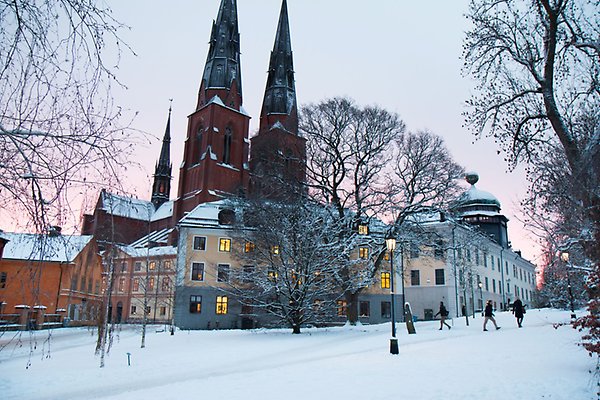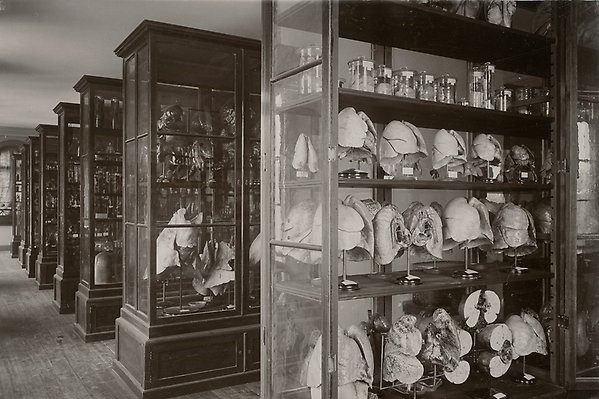History of Uppsala University
Uppsala University is the oldest university in Sweden, founded in 1477. Initially, teaching at the University mainly consisted of lectures in philosophy, law and theology. The University suspended its activities in 1515 but restarted towards the end of the century, in 1593. From that point on, the University grew and broadened its range of subjects. The major donations made by King Gustaf II Adolf in the 1620s gave added impetus and the number of students increased sharply.
%20Jubileumsfest%201900.jpg)
The University celebrates the 300th anniversary of its reopening in 1893.
Timeline
1477: Uppsala University is founded
Anyone wanting to start a university in Sweden in the 15th century needed written authorisation from the Pope, a papal bull.
Jakob Ulvsson took the initiative to apply and on 27 February 1477 Pope Sixtus IV gave his permission.
Education at the University began and Sweden’s first student could begin his studies.
1600: First conferment ceremony
All students who take a doctoral degree are invited to a solemn ceremony in the University Main Building, known as the Doctoral Degree Conferment Ceremony.
In the ceremonial conferment act in the Grand Auditorium, the new PhDs receive their symbols of honour: a hat or laurel wreath and a diploma.
Reflecting the University’s long history, some parts of the ceremony are in Latin.
1663: Student nations become legal
When the first student nations were established in the early 17th century, they were illegal. It took several decades for the University’s governing board (the Consistorium) to legalise the student nations. This happened in 1663.
Ever since, the nations have been a natural meeting point for students and a key factor of student life in Uppsala.
1741: Linnaeus becomes professor
Carl Linnaeus is primarily known for the system he constructed for classifying and naming nature.
One reason for the impact of Linnaeus’s work was his ability to create networks, nurture good contacts and acquire benefactors.
1893: Alfred Nobel receives an honorary doctorate
In 1893 Uppsala celebrated the 300th anniversary of the Uppsala Meeting. At this meeting in 1593, the Church of Sweden took the final steps in breaking away from the Catholic Church. This Uppsala Meeting also relaunched the University, after it had been dormant since 1515.
In connection with the tercentenary celebration, the University bestowed an honorary doctorate on Alfred Nobel.
2013: Gotland University College becomes part of Uppsala University
On 12 December 2012 the Riksdag decided to merge Uppsala University and Gotland University College. The following year, Gotland University College therefore became part of Uppsala University and is now called Campus Gotland.
Famous people and former vice-chancellors
The first woman to hold a regular professorial chair at Uppsala University was Gerd Enequist. She was appointed professor of human geography in 1949.
She was also a member of the delegation for road planning 1954–1958 and of the editorial committee for the Atlas of Sweden, to which she contributed maps describing population, the built environment and business activities.

Gerd Enequist (1903–1989) in connection with her professorial appointment. Photo from the collections of Uppsala University Library.
Historic cultural milieus
Many of the historic buildings and milieus in Uppsala are associated with the University.
One of them is Gustavianum, which is the University’s oldest surviving building. Though it is now a museum, in the 17th century Gustavianum was the University’s main educational centre.

Human remains in the University’s collections
From the mid-nineteenth century onwards, Uppsala University built up collections of human remains for use in medical research and teaching.
Since then, the view of how human remains should be treated has changed. This also applies to the view of the equal value of human beings, of consent and of the right to determine what happens with your own body after death.

The large exhibition hall at the Department of Anatomy, around 1880.
